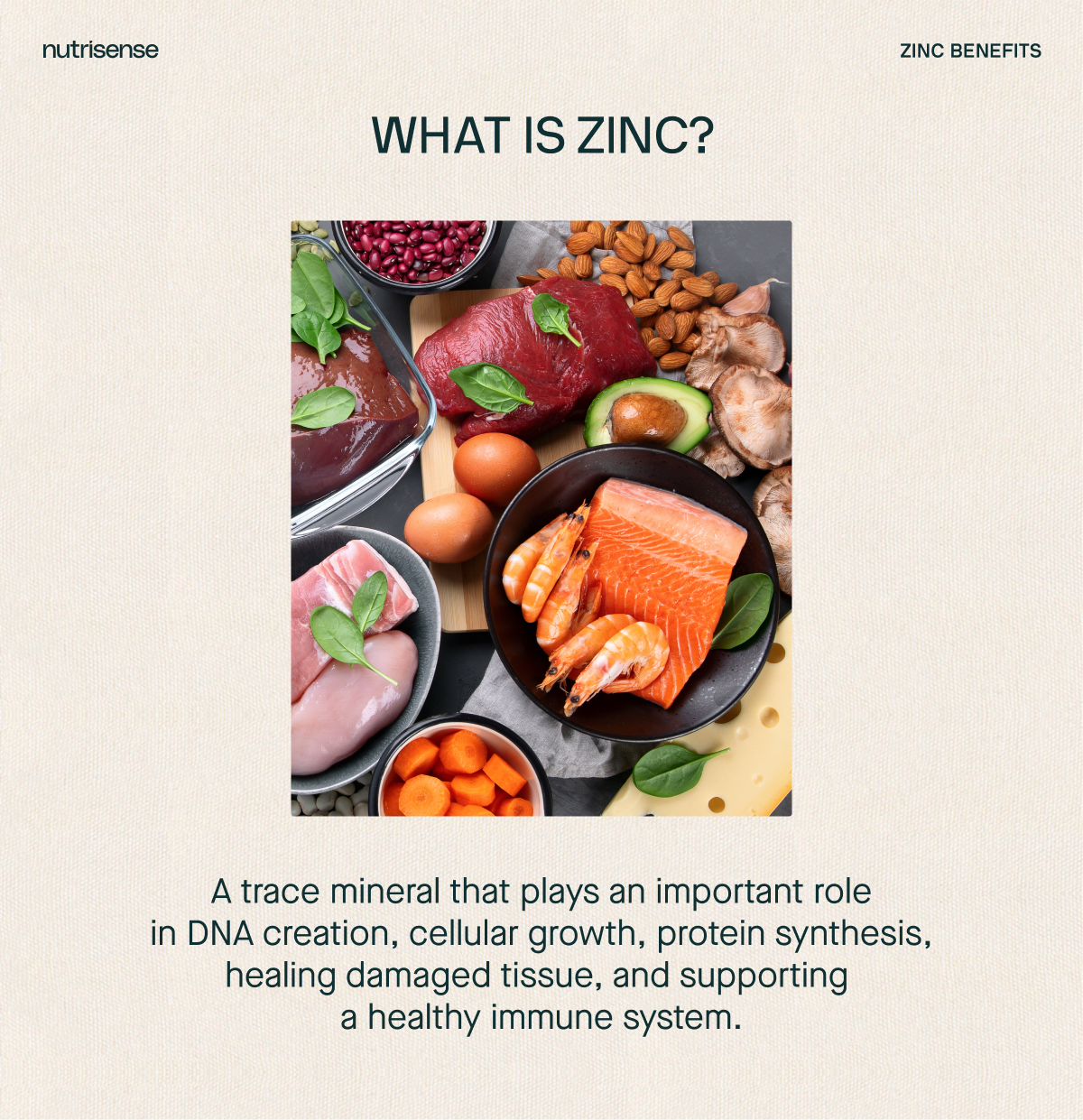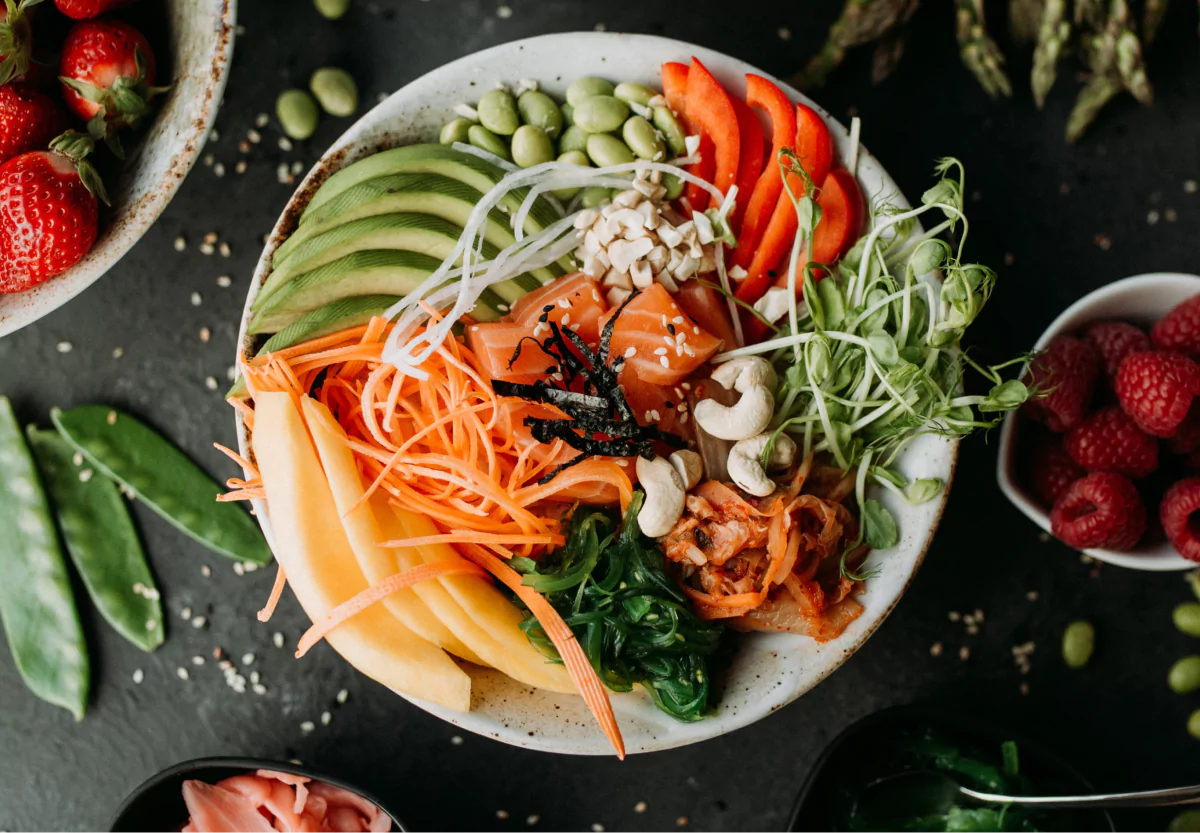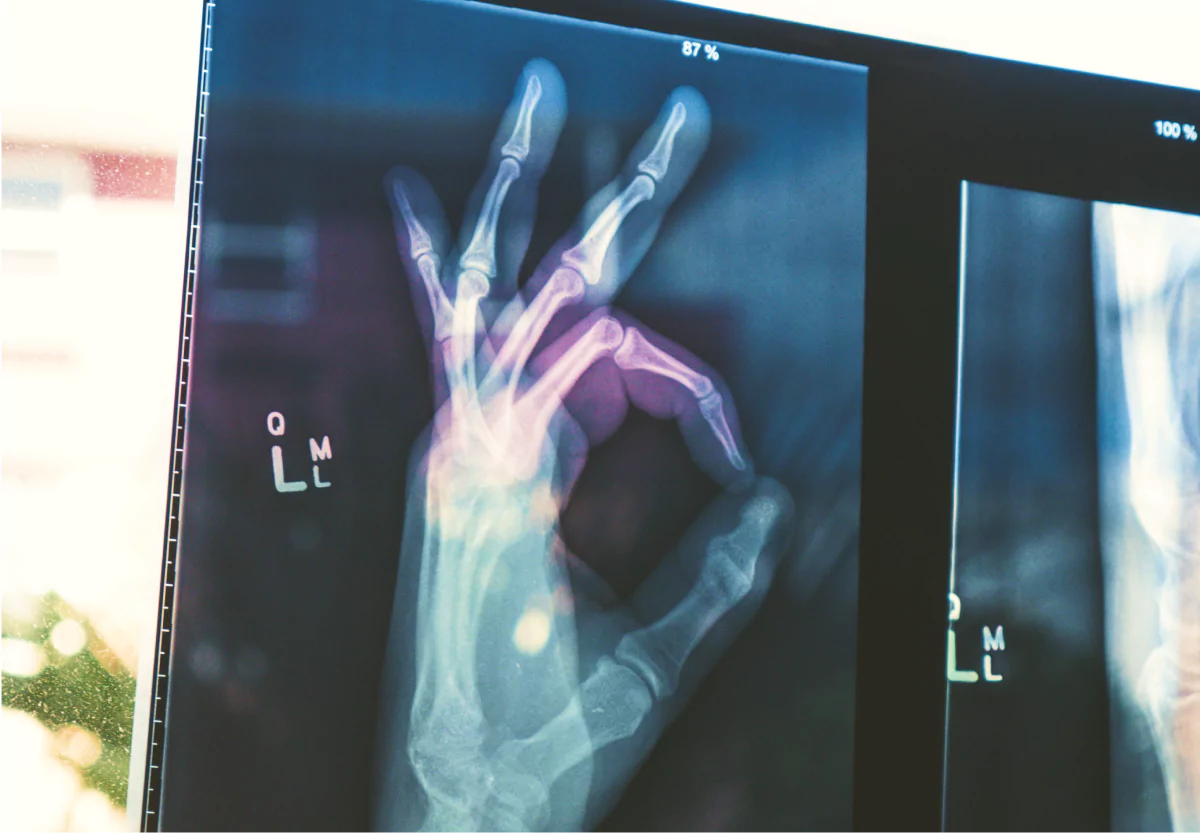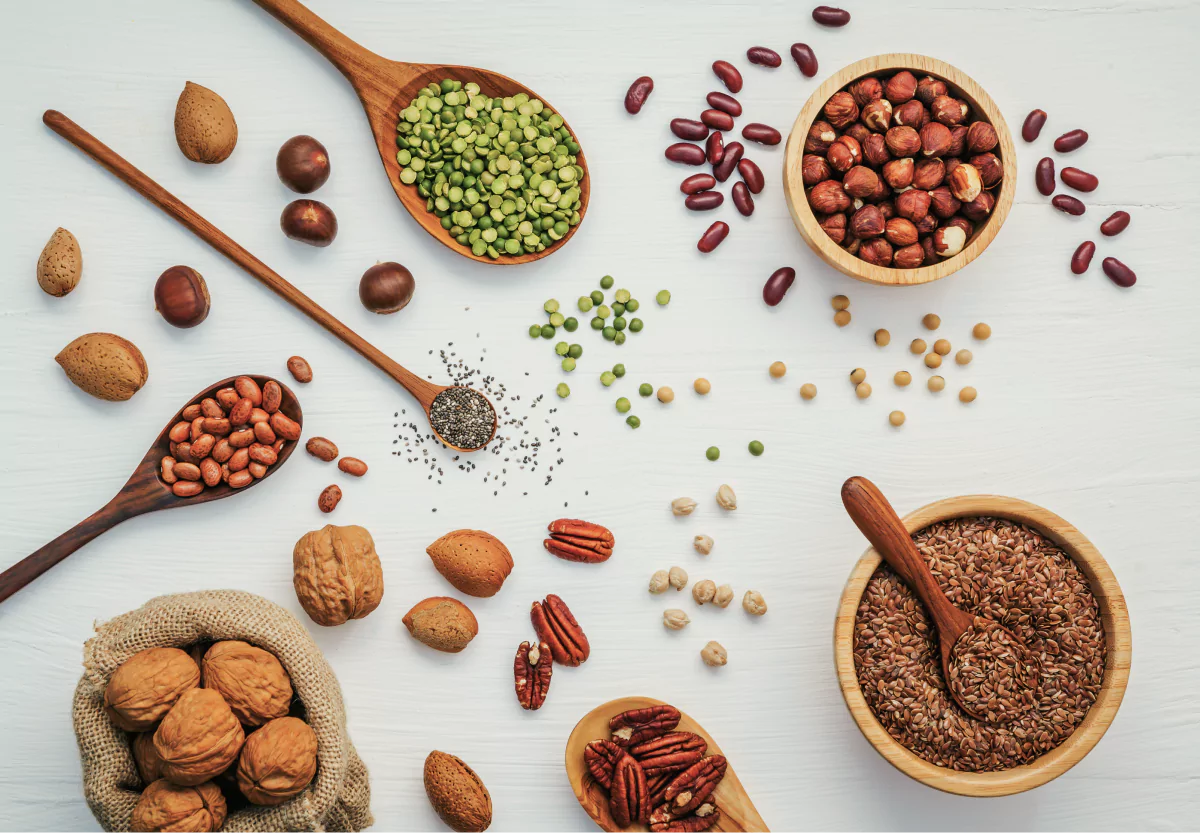9 of the Biggest Zinc Benefits for Women

Key Takeaways
Though it is often an overlooked mineral, zinc is integral to health. Zinc is known for supporting everything from eye health to immune function, and for women, zinc holds some distinctively important benefits.
Achieving optimal zinc levels from diets rich in animal-based protein and plant-based foods is crucial, but some people may need supplements to avoid becoming deficient in this mineral. In this article, we delve into the power-packed realms of zinc.
From hormonal balance to skin health, get ready to explore why this mighty mineral is especially indispensable for every woman's health journey.
What is Zinc?

A trace mineral that plays an important role in DNA creation, cellular growth, protein synthesis, healing damaged tissue, and supporting a healthy immune system. Zinc is a trace mineral, which means that the body only needs very small amounts of it to maintain essential functions.
This element plays a major role in promoting the activity of almost 1,000 enzymes, which contribute to vital chemical reactions. Zinc is particularly important for DNA creation, cellular growth, protein synthesis, healing damaged tissue, and supporting a healthy immune system.
Some key roles performed by zinc in the body include bolstering immunity, enhancing nervous system function, and improving brain activity and memory. Zinc also helps with wound healing and is fundamental to your sense of taste and sense of smell.
However, it’s important to keep in mind that if you are already meeting your zinc needs, supplementation has not been shown to be beneficial. In fact, excess intake of zinc may have many negative effects, including immune impairment.
How To Know If You Need More Zinc In Your Diet

There are certain populations that may be at an increased risk of having a zinc deficiency. These include vegans and vegetarians, people with IBS, IBD, Crohn's disease, women who are pregnant or breastfeeding, those who have had bariatric surgery, or those who struggle with alcohol use disorder.
The signs of zinc deficiency can surface through a variety of symptoms. Some of the common symptoms include of low zinc levels include:
- Weakened immune system (frequent cold symptoms or infections)
- Hair loss
- Delayed wound healing
- Reduced ability to taste or smell
- Skin issues like acne, eczema, or psoriasis
In addition to these general symptoms, women should pay particular attention to these concerns related to zinc deficiency:
- Irregular periods or amenorrhea (absence of menstruation)
- Hormonal imbalances, including premenstrual syndrome (PMS)
- Infertility
- Increased risk for osteoporosis
The Top 9 Health Benefits of Adequate Zinc for Women

It bears repeating that if your zinc intake is already sufficient for meeting your needs, there’s no known benefit to adding more. Excessive zinc intake can be harmful to your health. Adverse effects of high zinc intake may include:
- Nausea
- Vomiting
- loss of appetite
- abdominal cramps
- Diarrhea
- Headaches
- Impaired immune function
- Altered lipids, including low HDL cholesterol
Excessive zinc intake is far more commonly associated with zinc supplements than with whole food sources of zinc. This is one reason it may be a lot safer to simply eat more zinc-rich foods if you’re looking to improve your zinc intake. Read on for a roadmap of practical strategies, guiding you on a journey to optimal zinc levels and improved health.
1) Healthy Immune System
Zinc plays an indispensable role in the production and function of immune cells. It guides immune cell signaling and helps to activate immune cells, thus warding off challenges by bacteria, parasites, and viruses. But if you’re thinking that supplementing with zinc in the form of zinc lozenges, gels, capsules, or sprays to help reduce symptoms of the common cold, will guarantee success, that might not always be the case .
A recent analysis published in 2021 in BMJ Open found zinc had only a modest effect or none at all, especially with easing daily symptoms. There is also no evidence that zinc doses over 100 milligrams per day lead to greater success in the treatment of the common cold.
2) Skin Health
Adequate zinc helps support skin health through a variety of mechanisms. The normal production of new skin cells and the integrity of skin relies on zinc-requiring enzymes and proteins that guide this process. The skin’s need for sufficient zinc is also evident in studies of wound healing and inflammation reduction.
Zinc may also be used as a topical ingredient to treat certain dermatological conditions, with mixed results.
3) Reproductive Health and Hormone Balance

Zinc is needed for the normal development and function of the female reproductive system, including ovulation and menstrual cycle regulation. Zinc also facilitates egg maturation, a critical step for successful fertilization. Deficiencies can lead to an irregular menstrual cycle, hindered egg development, and even lower fertility rates.
Zinc is tightly linked with the production and regulation of hormones in the body. It helps support the production of thyroid hormones, including thyroid stimulating hormone (TSH) and thyrotropin releasing hormone (TRH). Moreover, ensuring adequate zinc seems to have a positive effect on symptoms associated with polycystic ovary syndrome (PCOS), particularly insulin resistance and lipid balance.
For some women, meeting zinc needs can even prove helpful for conditions like endometriosis, primary dysmenorrhea (menstrual pain), and the vaginal dryness of menopause.
4) Mood Regulation

Zinc helps to create and control brain signals, which can affect your mood. If your body doesn't have enough zinc, it might make you feel down or depressed. Too little zinc can also affect the levels of a neurotransmitter called GABA, which helps you feel less scared, worried, and stressed.
But remember, if you are struggling with mood-related issues, simply taking higher doses of zinc supplements is not always a solution. Meeting your zinc needs through diet and exploring other possible contributing factors is important.
5) Hair Health
A deficiency in zinc can lead to damaged hair and even hair loss. There's evidence that restoring serum zinc levels can inhibit the catagen phase (a transition stage between hair growth and rest) of the hair growth cycle, which may encourage hair growth.
6) Bone Density

This essential mineral aids in bone formation and mineralization, supporting overall health and strength of bones. Following menopause, the risk of osteoporosis and bone fractures in women increases due to the decrease in estrogen levels. Here, meeting zinc needs becomes even more critical, as studies suggest adequate intake can help support bone density and reduce the risk of osteoporosis.
7) Blood Sugar Levels
Zinc plays a significant role in insulin storage and secretion. Insulin, which helps to regulate the body's blood sugar levels, is stored in the pancreas as microcrystalline arrays of zinc insulin hexamers within specialized glucose-regulated secretory vesicles.
In simpler terms, this means that zinc is intrinsically linked to the storage and secretion mechanism of insulin. Healthy levels of zinc helps to balance glucose, or improve your glycemic control.
8) Digestive Health

Zinc is really important for the digestion process and helps support many related functions, including intestinal cell junctions and digestive secretions. Zinc helps give structure to proteins and aids several enzymes to work effectively.
These enzymes help break down the food we eat—like carbohydrates, proteins, and fats—during digestion. Zinc also helps support cellular defense against oxidative stress and detoxification of heavy metals.
9) Vision Support
Zinc plays a vital role in maintaining optimal eye health due to its presence in high amounts around your retinas (the light sensitive part at the back of your eyes). Zinc deficiency in humans may result in abnormal dark adaptation and/or age-related macular degeneration.
Zinc is required for vitamin A to be converted to the active form that is needed for the production of rhodopsin. This is a protein in the eye that absorbs light and helps with dark adaptation. Without enough zinc, you may experience symptoms of night blindness.
Studies have also shown that zinc might slow down the progression of advanced age-related macular degeneration (AMD), a leading cause of vision loss among people aged 50 and older. So, by maintaining the right zinc levels, you are safeguarding your eyes for years to come.
Tips for Getting Enough Zinc

Now that you're aware of the significant roles that zinc plays in various aspects of your health, you might be wondering how you can ensure that you're getting enough of this crucial mineral in your diet. Below are some ways to support your zinc needs.
Include More Protein Sources
Animal-based sources of protein are among the best food sources of zinc. Particularly oysters, crab, and red meats like beef, lamb, and pork. For instance, six medium oysters can provide more than 30 mg of zinc, which is over 200 percent of the daily recommended intake.
Chicken and turkey, particularly the dark meat, contain generous amounts of zinc. Protein can also help with zinc absorption.
Eat Whole Grains, Legumes, Nuts, And Seeds

While animal protein forms the major source of dietary zinc, certain plant-based foods, including whole grains and legumes, can also contribute. Whole grains like wheat, quinoa, rice, and oats contain notable amounts of zinc. Similarly, legumes such as lentils, chickpeas, and beans can help provide the nutrient.
However, these plant-based sources also contain a compound known as phytic acid which can bind zinc and reduce its absorption. This is why, although legumes and whole grains are a good source of zinc, the bioavailability of the mineral might be lower from these sources. However, certain fermentation techniques are known to reduce phytic acid and may be beneficial.
Remember, diversifying your diet is key to ensuring optimal zinc intake. To overcome this and ensure you are getting enough zinc in your diet, consider incorporating some zinc-rich nuts and seeds. Cashews and pumpkin seeds, for instance, are a source of zinc.
Consider Zinc Supplements
It's essential to follow the recommended daily allowance (RDA) for zinc to avoid excessive intake. Generally, this is eight milligrams per day for adult women and 11 milligrams per day for adult men. Zinc supplements often come in the form of zinc gluconate, zinc oxide or zinc citrate, and many multivitamins also contain one of these forms of zinc, in addition to minerals such as magnesium and calcium.
High doses of oral zinc supplements can interfere with the absorption of other vital minerals, like copper and iron. Overdosing on zinc supplements may cause side effects like fatigue, stomach cramps, headaches, and even suppress your immune function, as mentioned earlier. Excess zinc can lead to side effects and even lead to toxicity, so always consult a registered dietitian or nutritionist before deciding whether or not to supplement.
Not Too Much or Too Little

It’s important to note that the benefits we've discussed come from getting just the right amount of zinc, not too much or too little. If you have too little or too much zinc, it won't help you more, in fact, it could even cause harm.
Think of it like a smiley face—the happy part in the middle is where you want to be with your zinc levels. Both ends of the smile, where the smile lines curve upwards on either side, represent getting too little or too much zinc. Both situations can cause similar problems, including poor immune system function. So, the goal is to make sure your zinc intake is in the "happy" range, not too little or too much, and enjoy the benefits of a well-balanced diet.
Find the right Nutrisense programto turn insight into progress.
Go Beyond Glucose Data with Nutrisense
Your glucose can significantly impact how your body feels and functions. That’s why stable levels are an important factor in supporting overall wellbeing. But viewing glucose isn't enough. Nutrisense, you’ll be able to learn how to use your body's data to make informed lifestyle choices that support healthy living.
One-to-one coaching
Sign up to access insurance-covered video calls to work with a glucose expert: a personal registered dietitian or certified nutritionist who will help tailor your lifestyle and diet to your goals.
Monitor and measure what matters
With the Nutrisense CGM Program, you can monitor your glucose with health tech like glucose biosensors and continuous glucose monitor (CGM)s, and analyze the trends over time with the Nutrisense App. This will help you make the most informed choices about the foods you consume and their impact on your health.
Find your best fit
Ready to take the first step? Start with our quiz to find the right Nutrisense program to help you take control.

Heather is a Registered and Licensed Dietitian Nutritionist (RDN, LDN), subject matter expert, and technical writer, with a master's degree in nutrition science from Bastyr University. She has a specialty in neuroendocrinology and has been working in the field of nutrition—including nutrition research, education, medical writing, and clinical integrative and functional nutrition—for over 15 years.


.webp)

